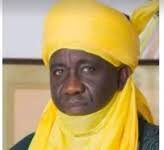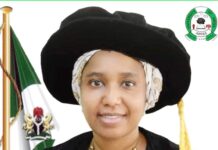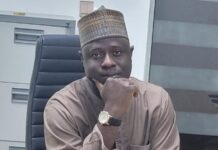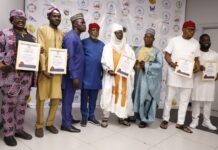Akeredolu Blows Hot, Says Power Must Return to South in 2023
POLITICS DIGEST – Governor Rotimi Akeredolu of Ondo State has insisted that the Presidency must return to the South in 2023 in order not to thwart the power rotation arrangement in the country.
Akeredolu said this on Wednesday at the first anniversary of late Prof Bankole Oke of the Faculty of Veterinary Medicine, University of Ibadan, while delivering a lecture entitled, “Nigeria: The politics of religion in a transitional society.”
He advised Nigerians to make sure that power does not remain in the North under what he described as the guise of a party picking a southerner as its vice presidential candidate.
He said, “A party that picked somebody from the North as its presidential candidate is not doing so in the interest of the country. Peter Obi has the right to contest because he is from the South.
“We are ready to give it whatever it takes to make sure power returns to the South in 2023.
Read Also:
“There appears to be an understanding that power must rotate between the North and the South. This understanding witnessed the contest of two candidates from the South-West for the Presidency. It was part of the unwritten agreement that the power equation must be balanced to allay the fear of domination harboured by the people of the South.
“There is a conscious attempt not to disrupt the extant agreement. There has been a seamless transition from one civilian regime to another since 1999, the longest in the political history of the country.
“The current political permutations raise strong suspicions of an undeclared motive to thwart the arrangement that has been working for the country. The rotation of the office of the President is between the North and the South since the inception of the Fourth Republic.”
The governor warned Nigerians to beware of the tricks of desperate politicians using religion to divide the people.
Akeredolu said politicians in the First Republic achieved so much because they were people with huge capacity, and religion was not an issue in determining those elected and appointed into offices but the capacity to deliver.
















